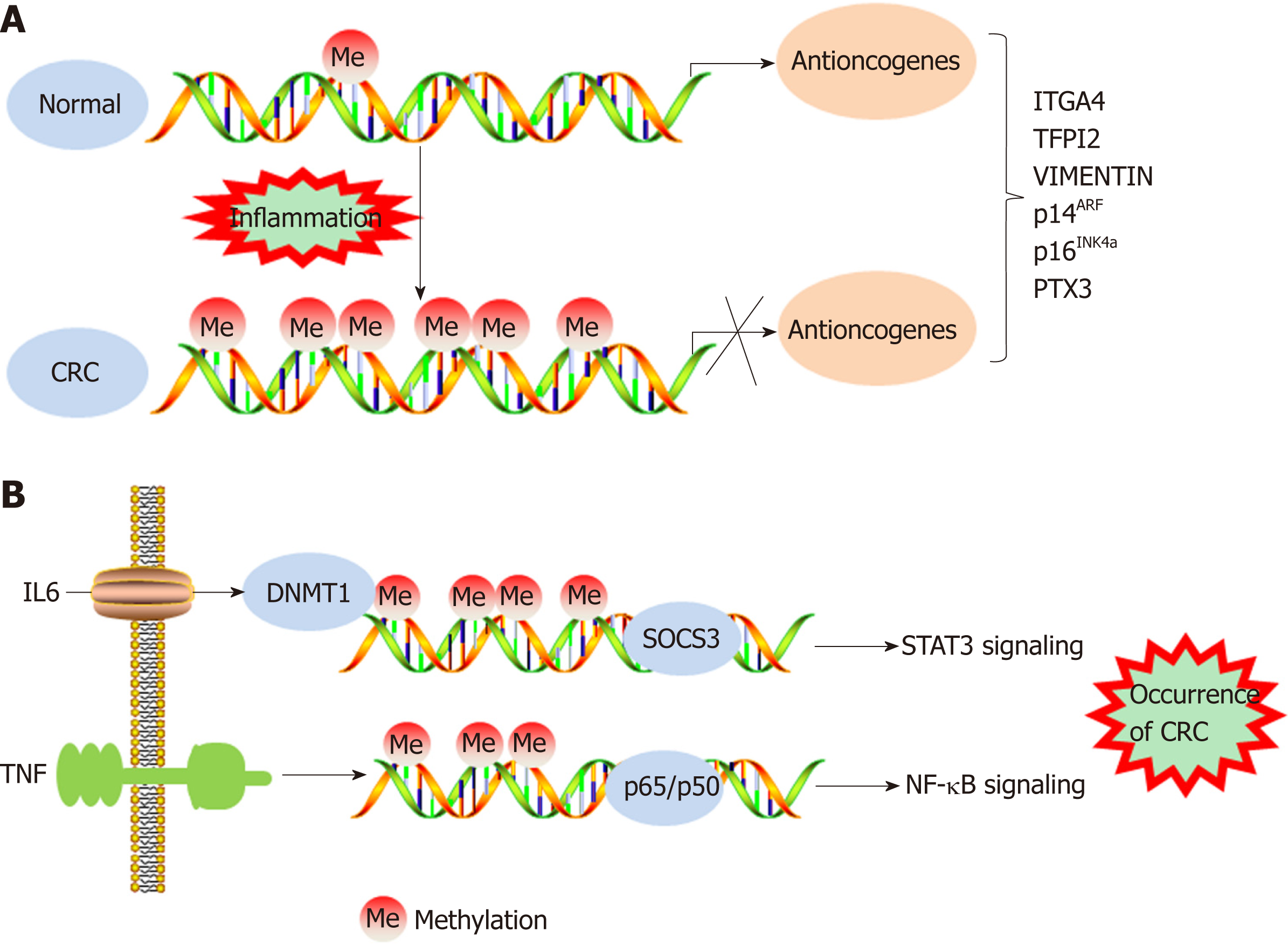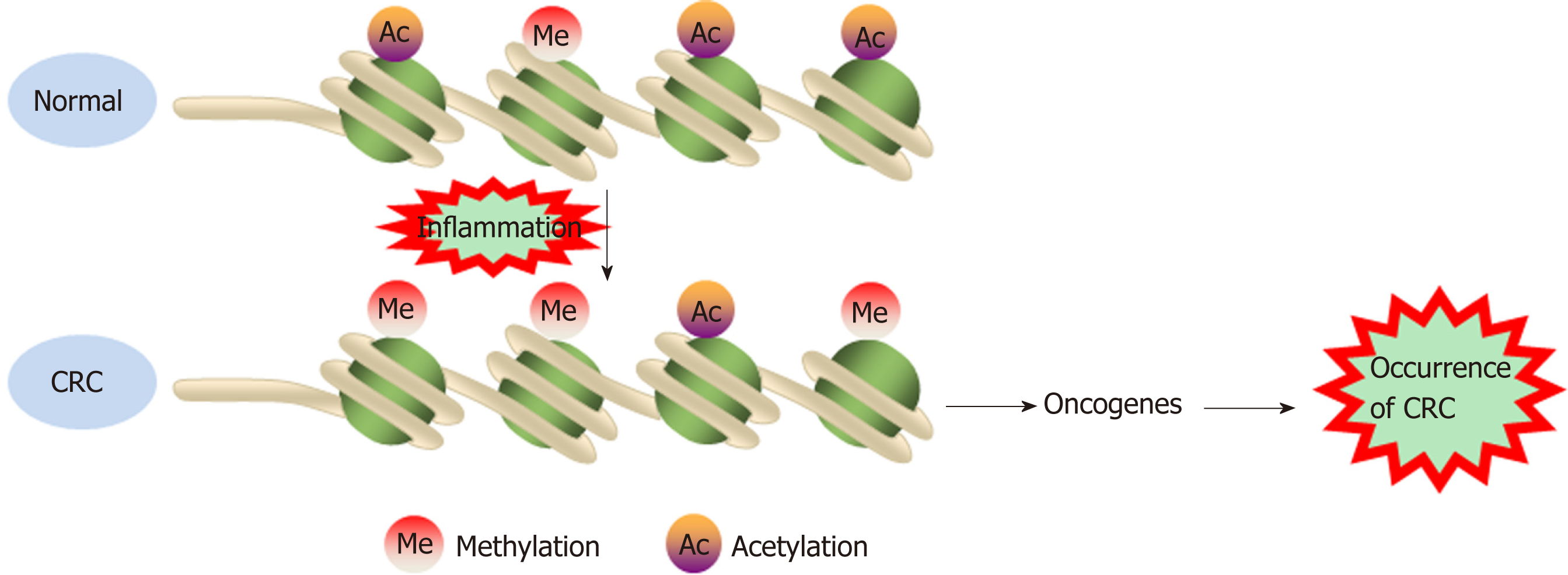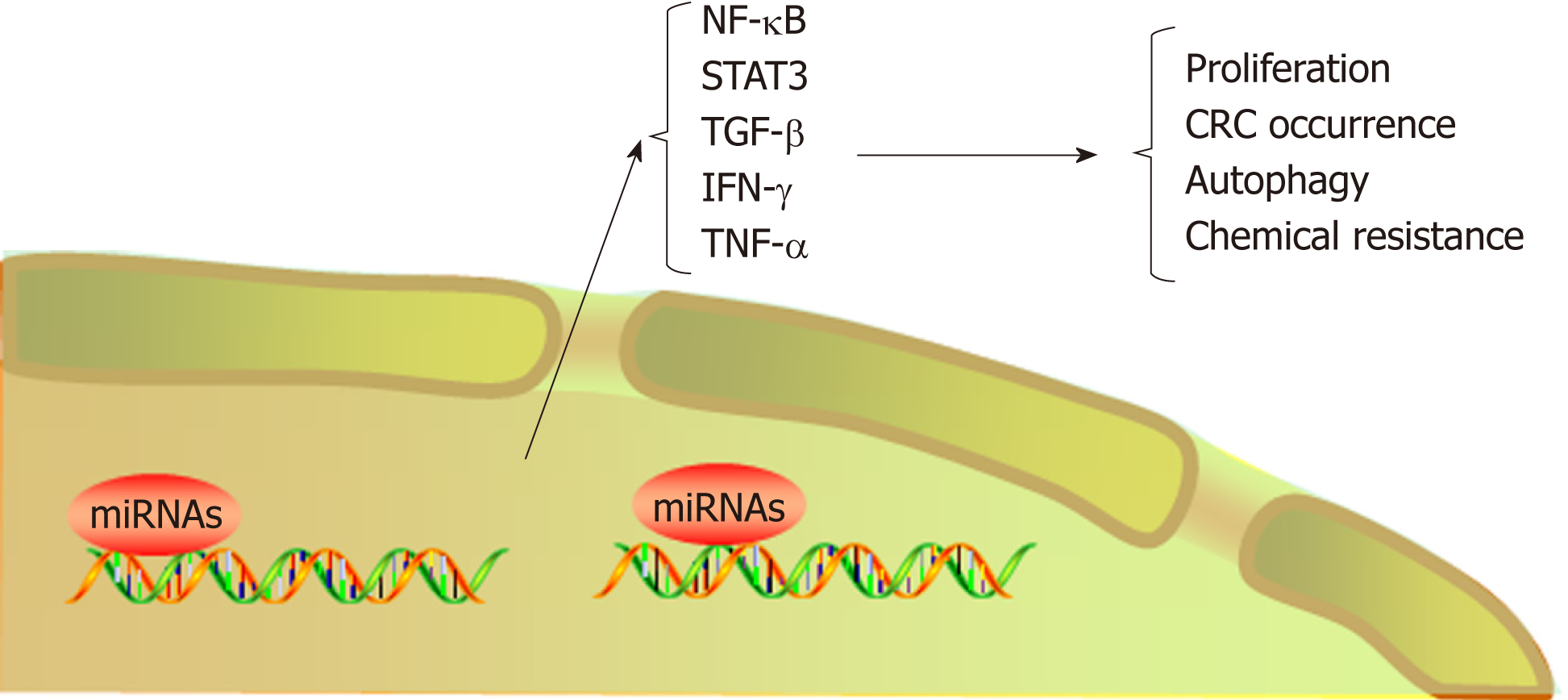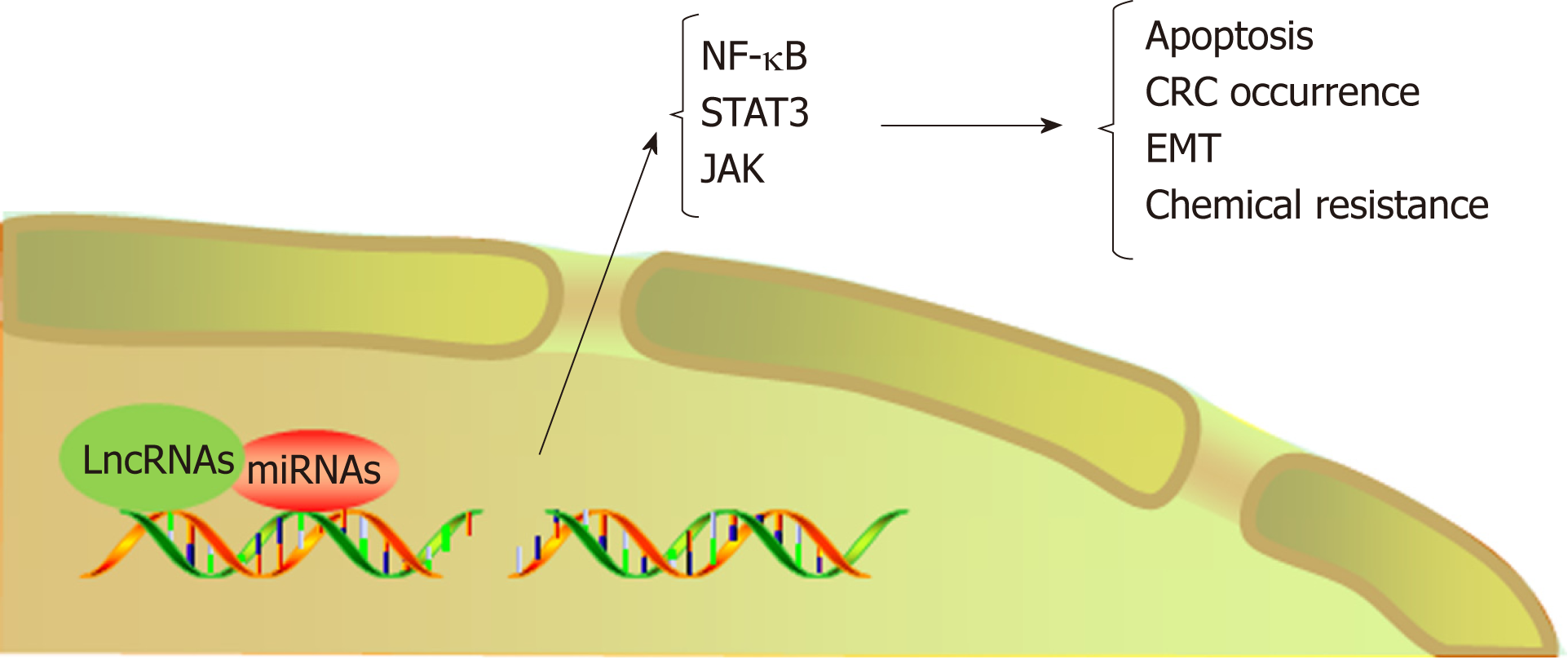Copyright
©The Author(s) 2019.
World J Gastroenterol. Jun 21, 2019; 25(23): 2863-2877
Published online Jun 21, 2019. doi: 10.3748/wjg.v25.i23.2863
Published online Jun 21, 2019. doi: 10.3748/wjg.v25.i23.2863
Figure 1 DNA methylation regulates the transformation of inflammation into colorectal cancer.
A: DNA hypermethylation levels inhibit expression of antioncogenes, resulting in the occurrence of colorectal cancer (CRC); B: Inflammatory cytokines regulate STAT3/NF-κB signaling to promote the occurrence of CRC by DNA methylation. CRC: Colorectal cancer; IL-6: Interleukin-6; DNMT1: DNA methyltransferase 1; SOCS3: Suppressor of cytokine signaling 3.
Figure 2 Histone methylation and acetylation modifications increase oncogene expression to promote cancer occurrence.
CRC: Colorectal cancer.
Figure 3 MicroRNAs regulate colorectal cancer progression by regulating inflammatory cytokines.
CRC: Colorectal cancer; TNF-α: Tumor necrosis factor α; TGF-β: Transforming growth factor β.
Figure 4 LncRNAs regulate the occurrence and chemotherapeutic resistance of colorectal cancer by mediating microRNAs/inflammatory signaling pathways.
CRC: Colorectal cancer; EMT: Epithelial-mesenchymal transition; JAK: Janus kinase.
- Citation: Yang ZH, Dang YQ, Ji G. Role of epigenetics in transformation of inflammation into colorectal cancer. World J Gastroenterol 2019; 25(23): 2863-2877
- URL: https://www.wjgnet.com/1007-9327/full/v25/i23/2863.htm
- DOI: https://dx.doi.org/10.3748/wjg.v25.i23.2863












